#REDUCED TO CARBON--
Explore tagged Tumblr posts
Text
pov u boop lothric and he just crumbles into dust.
3 notes
·
View notes
Text

Dark Fountains Causing the Apocalypse? ❌😒
Dark Fountains as a Metaphor for Global Warming? ✅👏
#deltarune is a metaphor for climate change#change my mind#also climate change is real and Ralsei is an environmentalist#bread#comic#deltarune comic#used a new brush today for line art! absolutely loved it#I love changing up my style and consistency!#deltarune#art#my art#memes#carbon emissions#reduce carbon emissions#environmental action#this only took me like an hour and a half? not bad!!#yes I’m pushing my own ideals on delatrune. who hasn’t#ralsei deltarune#ralsei#kris dreemurr#susie deltarune
3K notes
·
View notes
Text
"A first-of-its-kind report has discovered that altering the ingredients list or manufacturing methods of widely used medication can really cut back on carbon emissions.
They found a reduction of 26 million tons, enough to cancel out the whole carbon footprint of the city of Geneva for a decade. Best of all, it’s already happening, and in fact, is almost done—those emissions were already saved.
The lifesaving HIV treatment dolutegravir (DTG) is used by 24 million people worldwide.
Today, over 110 low and middle-income countries have adopted DTG as the preferred treatment option. Rapid voluntary licensing of the medicine, including its pediatric version, to over a dozen generic manufacturers, significantly drove down prices, and it’s estimated that 1.1 million lives will be saved from HIV/AIDS-related deaths by 2027.
Its predecessor, efavirenz, contained 1200 milligrams of active ingredient across the three active compounds present, while DTG contains 650 milligrams of just one compound. This small difference—literally measurable in single digits of paper clips by weight—was enough to change the carbon emissions footprint of the medication by a factor of 2.6.
The incredible discovery was made in a recent report by Unitaid, a global public-private partnership that invests in new health products and solutions for low and middle-income countries, called Milligrams to Megatons, and is the first published research to compare carbon footprints between commonly used medications.
“This magnitude of carbon footprint reduction surpasses many hard-won achievements of climate mitigation in health and other sectors,” the authors of the report write.
At the rate at which DTG is produced, since it entered into production and treatment regime in 2017, 2.6 million fewer tons of CO2 have entered the atmosphere every year than if efavirenz was still the standard treatment option.
Health Policy Watch reports that the global medical sector’s carbon emissions stand at roughly 5% of the global carbon emissions and are larger than the emissions of many big countries, and 2.5 times as much as aviation.
“This report demonstrates that we can achieve significant health improvements while also making strides in reducing carbon emissions. By adopting innovative practices and prioritizing sustainability, we can ensure that medicines like DTG are not only effective but also environmentally responsible,” Vincent Bretin, Director of Unitaid’s Results and Climate Team told Health Policy Watch."
-via Good News Network, July 17, 2024
#had never occurred to me before this was a way to reduce emissions#awesome#now someone make pharma companies actually give a shit#still really encouraging for the future. every little bit helps#and apparently this bit is pretty big#hiv#hiv treatment#medical news#carbon emissions#pharma#climate change#good news#hope
597 notes
·
View notes
Text
I need a sign I can tap that just says:
while I understand that many people in fandom use fanfic to self-soothe or deal with or figure out their own baggage, I personally dislike using characters' (whether textual or inferred) trauma as the primary or indeed only lens for character analysis, and thus I will not be doing that
it is kind of wordy but, yeah
#the writing life#most often a character's angsty backstory or terrible childhood is not real-world trauma but in-text drama fodder#and I am not particularly interested in pure therapyfic#I accept that it has value to other people and I'm not the fandom police#but I find it unhelpful and often flattening to try and reduce a character's whole personality to their suffering#especially in a high-drama genre like fantasy/adventure where hideous nonsense just happens to characters daily#plus as a person with [an amount of issues] I do not find wallowing in a fictional person's problems very enjoyable#examining them; yes#using them to drive story; yes#for me any catharsis comes from them finding peace or clarity or leaning to live with whatever happened to them#but this tends to come with a side of every other character becoming only a carbon cut-out cheerleader/therapist/trauma bin#and in particular I am not about that aspect
12 notes
·
View notes
Text
Shout out to dwarf fortress for getting me to spend 4 hours Googling about metallurgy
#dwarf fortress#metallurgy#I didn’t even end up playing any dwarf fortress but I least I now know that carbon monoxide can reduce iron oxides#I’m putting the blame on dwarf fortress but let’s be honest there’s some neurodivergency at work here too
14 notes
·
View notes
Text
#good news#environmentalism#science#industry#carbon emissions#reduce carbon footprint#environment#carbon dioxide#climate crisis#usa#climate change#steel#mac and cheese#ice cream
18 notes
·
View notes
Text
💉💊🗑️Addicted To Trash🗑️💊💉
Food scraps take up the most landfill space in the US. Think about that for a moment & process it. As much food insecurity as there is in the US. As many people that die from poverty & from hunger.
The millions of children that face an empty refrigerator & empty pantry every day after school. That don't have money for lunch and don't have access to a free lunch or lunch voucher program.
The parents that skip meals multiple days in a row so that their children can eat.
The sugar sandwiches, cereal with water, knocking on neighbors doors begging for food.
All so Americans that have more than they'll ever need can throw out more than they can ever eat while millions are food insecure and starve within the same country.
Buy loose fruits & vegetables at a local food market, buy food with minimal packaging, only purchase groceries & food items that you actually need & will use & avoid delivery, take out, fast food, fast casual, eating at a sit down restaurant, coffee & donut shops.
Per Google: Food waste accounts for 6% of global greenhouse gas emissions.
According to the Environmental Protection Agency, food scraps are the number one item sent to landfills in the United States.
Food waste accounts for 22% of municipal waste in the U.S.
We discard more food than any other country, even as the number of people experiencing food insecurity grows.
Food waste, which includes everything from meat and fish to fruit and vegetables, can take anywhere between one month and a year to decompose.
However, food decomposition can take longer in a landfill while releasing greenhouse gases into the atmosphere.
Americans are addicted & brainwashed. You can literally go days and even weeks as an American during hotter months without encountering air that hasnt been artificially cooled. Brainwashed! Im 42 and my grandparents in rural Georgia that I visited and stayed with for a month every year as a kid didnt have air conditioning. Yet todays modern American life claims it isnt possible yet I did it for a month every year in my youth.
Per Google: Air conditioning, heating & refrigerators are the biggest wasters of energy in American households. The cooling industry is important, but it is also incredibly polluting – accounting for around 10% of global CO2 emissions. That is three times the amount produced by aviation and shipping combined. And as temperatures around the world continue to rise due to climate change, the demand for cooling will increase too.
The average American sets their AC to 68 to 72 degrees which is fucking absurd and ridiculous.
Set air conditioning to 78 to 80 when you are home and 80 when you are asleep and not home.
I set my AC over the summer even during the current heat wave to 80 — I dont have central air in my 1 bedroom apartment, I have wall units in my living room & bedroom.
Use fans, wear light/minimal clothing or go naked inside your home (Ive done this) and drink 64+ ounces of water a day.
The average American keeps thermostat during winter at 72 to 80 degrees which is fucking absurd.
Per Google: Heat and air contributing to nearly half of a home’s energy usage. Today, 90% of American households have air-conditioning. America is addicted to home heating and cooling, consuming more energy for air-conditioning than the rest of the world combined.
Keep thermostat during cold months at 68 degrees. Layer clothing and wear blankets inside.
Per Google: In the same report, the I.E.A. predicted that worldwide energy use by air-conditioners would triple by 2050, “requiring new electricity capacity the equivalent to the combined electricity capacity of the United States, the E.U. and Japan today.”
The number of global cooling devices is estimated to increase from 3.6 billion to 9.5 billion by 2050, according to a report by the United Nations Environment Programme (UNEP) and the IEA.
Without radical changes to the cooling industry, HFC emissions are projected to contribute warming equivalent to 20% of CO2 output in 2050, the UNEP report warns.
However, some say that refrigeration could be the number one way to reduce carbon emissions.
Per Google: Much of the world’s recent growth in cooling capability has been an adaptive response to global warming. The problem is self-perpetuating, because the electricity that refrigerators and air-conditioners run on is mostly generated by burning fossil fuels.
Part of the problem with refrigerants, however, is that much of the harm they cause is after we as consumers have finished using them. It occurs out of sight, and so largely out of mind.
Roughly 90% of refrigerant emissions occur at equipment’s end of life, according to Project Drawdown, a nonprofit that analyses climate solutions.
The most common HFC found in domestic fridges is HFC-134a, which has a global warming potential 3,400 times that of carbon dioxide. A typical fridge can contain between 0.05kg and 0.25kg of refrigerant, which if it leaks into the environment, the resulting emissions would be equivalent to driving 675km-3,427km (420-2,130 miles) in an average family-sized car.
Refrigerators are responsible for about 4% of a home's emissions, or 89 kg of CO2 per year.
The correlation between growth in efficiency and growth in consumption is not accidental.
Similarly to air conditioning & heating, if you've noticed a trend, just setting the temperature a few degrees higher/lower can make an extremely significant difference in terms of energy consumption, greenhouse gas emissions & your contributions to climate change.
Do people care enough to change their respective thermostats just a few degrees?
Set your refrigerator to between 35 and 38°F, and your freezer to between 0 and 5°F.
A refrigerator that's 10°F colder can use up to 25% more energy.
Ironically, as climate change progresses further, our home heating and cooling needs will continue to increase in order to insulate us from extreme weather.
"Ironically" or by design?
Home heating is the single largest source of power consumption in the home, and air-conditioning is the third.
Further, air conditioning in the U.S. accounts for 5% of total energy consumption annually, and releases approximately 100 million tons of carbon dioxide into the air.
When we asked Americans whether they program or adjust their home thermostats before they leave the house, an overwhelming majority (73%) said they do not.
The solution to so much environmental damage caused by Americans ridiculously blasting their central AC & heat is right in front of their faces and is blindingly obvious yet the mindless ecocide continues.
Why? Because you don't want to be slightly unfuckingcomfortable?
Layered clothing + blankets & lower setting central heat = Winter
Lighter minimal clothing + fans + higher setting central air = Summer
It IS that easy.
I do it every summer & winter in my 1 bedroom apartment.
Why don't 73% of Americans?
Because they don't fucking feel like it, that's why.
Avoid disposable products & avoid single use products.
Avoid ordering delivery & takeout & avoid buying food & drinks at restaurants, fast casual, fast food as it produces single use containers, cups, straws, utensils, napkins.
Avoid food packaging.
If you buy prepackaged snacks, consider making them yourselves — homemade granola bars, pop tarts, trail mix recipes, etc. can easily be found on Pinterest.
•Replace plastic water bottles with water filter + stainless steel thermos bottle. •Buy items with less packaging. •Purchase reusable containers. •Minimalism — buy needs only, not wants. •Repair instead of replace items. •Buy refurbished tech & electronic devices. •Go paperless - paper accounts for 40% of landfills in the US - 40 fucking percent!
Makeup wipes take 100 years to decompose.
Stop using make up wipes & use water, soap & a face towel instead.
Clothes can take up to 40 years to decompose!
Stop buying new clothes.
Buy used clothes only when needed from thrift shops, consignment shops, Goodwill, online thrift shops, Depop, Mercari, Poshmark.
The micro mininskirt I am wearing now is from Wet Seal and I got it when I was 17 over 25 years ago.
Outside of a missing button, it is good as new and I wear it all the time.

Stop with fast fashion.
Stop buying Shein, Fashion Nova, Romwe, Zaful. Stop going to the mall. Stop buying Forever 21 and H&M. Stop going to department stores. Stop buying Macys. Stop shopping at outlets. Stop buying from Nordstrom Rack. Stop buying clothes on Wish & Amazon.
Use and reuse the clothes you already have.
When they are no longer wearable, buy used clothes only — never new — from a thrift shop, consigment store, Goodwill or Depop, Poshmark or Mercari.
Stop buying new clothes!
Batteries can contaminate soil indefinitely -- use rechargeable batteries.
Sanitary pads are made of plastic & can take up to 800 years to decompose. 800 years!
Replace sanitary pads with period underwear (I use Proof) with ob tampons without applicators (what I do) or period cups with a stem to remove & insert (boil & sterilize after each cycle) or menstrual discs.
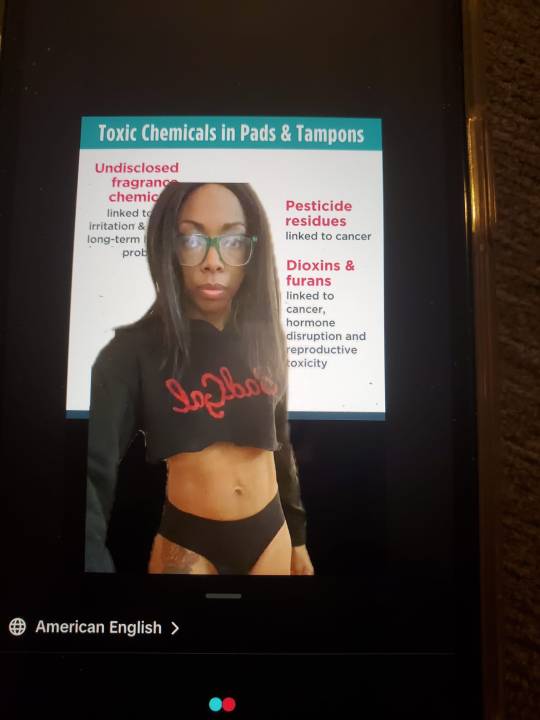
Pads & plastic tampon applicators have toxins, chemicals & pesticides that have been proven to cause excessive menstrual bleeding (heavy periods since 11 stopped when I switched from Always pads & Tampax tampons with plastic applicators to Proof Period Underwear & ob tampons without applicators), uterine cancer, fibroids, tumors & other reproductive issues.
Washer machines are also a problem.
Dryer sheets arent biodegradable — stop using them.
Doing laundry in a washer machine releases microplastics into the environment which ends up endangering, harming & killing oceanic creatures and polluting the ocean.
Handwash clothes when you can.
Do not own a washer and dryer as you will be encouraged to wash laundry more due to it conveniently being located inside your home.
Instead, opt for a living space without a washer and dryer (like my 1 bedroom apartment that Ive lived in for 10 years).
Limit trips to the laundromat to once a month or once every other month. Rewear clothing.
You dont have to “throw away clothes as dirty” after one use.
If it isnt stained or smelling, rewear it repeatedly.
Only go to the laundromat when you are out of clean clothes to wear.
I go about once a month to every two months.
If you already have a washer and dryer in your home, limit your use of them as much as possible.
Disposable diapers take 500 years to decompose.
500 fucking years.
Use cloth diapers.
Per Google: Yard waste is one of the top ten waste items in US landfills.
Per Google:
By weight, grass is the biggest component of yard waste, averaging half of all yard waste.
Leaves and brush each provide one quarter.
Either dont have a yard & dont live in a house as living in a house is itself wasteful, a climate change driver & overconsuming energy to simply even heat & cool such a large space.
Or if for some bizarre reason you feel you "need" a house or if you already own a house with a yard, do the following per junkloggers.com: When you mow, “grasscycle” by leaving grass clippings on your lawn instead of bagging then. The clippings will return nutrients to the soil instead of taking up space in landfills. Donate healthy plants that you want to replace to community gardens, parks and schools. Using recycled materials such as compost and recycled hardwood mulch help remove yard waste from landfills and reduces the “footprint” of your own landscape.
Follow the 5 Rs: •Refuse: Maximalism, consumerism, materialism & overconsumption, FOMO, sales & clearances, shiny new toy syndrome, shopping to impress others, trends, advertising that has intentional hypnotic messaging, includes brainwashing tactics, seductive messaging, endless repetition, psyops elements, psychological warfare to buy what they are advertising & selling. •Reuse: What you already have. •Reduce: What you buy & use therefore you will have less to throw away and recycle. •Repurpose: Fix broken glasses like I did, dont buy a new pair. I just bought a glasses repair kit for a few dollars versus wasting money on a new frame, new lenses & the fuel that would have been wasted to deliver the new pair of glasses to me. Repurpose gift bags & use reusable grocery bags as totes. Reuse junk mail and newspaper as gift wrap. •Recycle: Aluminum is indefinitely repurposable but takes 800 years to biodegrade. Wash out containers, check recycling numbers, separate items. Recycling uses oil!
Keep in mind that Exxon and the oil industry relentlessly promoted recycling before it became ubiquitious because oil is needed to recyle.
Recycling uses a huge amount of energy and is itself a contributor to climate change.
Its important to do all five Rs.
Dont just mindlessly buy use throw away recycle like big oil and capitalism endlessly brainwash you to do. All those times that you threw trash away as a kid in school, did you ever think where it was going? All those times your dad took the trash out and left it by the curb when you were young, did you ever think about where that trash was going? Did you ever think about landfills? Oceanic pollution & waste? Air pollution & air quality? Non biodegradable waste? Greenhouse gas emissions? Methane gas emissions? Landfills burning? Mountains of trash? Ofcourse not. If youre American, it was, out of sight out of mind. Im 42. When I was in school playing sports, it was throw out the empty plastic Gatorade bottle and back to softball practice. Back to track practice. Throw away trash, return lunch tray, on to my next class. Mindless. Brainwashed. Addicted to trash. Air quality near landfills is also poor and can be hazardous to humans and wildlife. The unwelcome sights, sounds, and smells of landfills make life unpleasant for nearby residents and reduce the land’s purpose. Overfull landfills may require clearing arable land and forests to create more room. Mindless. Brainwashed. Addicted to trash.
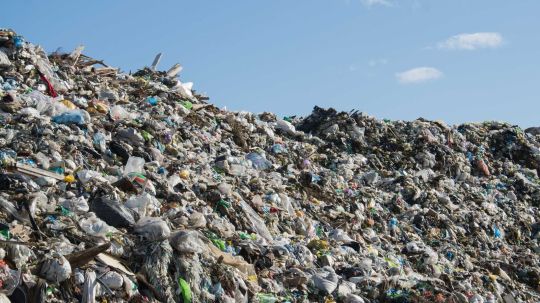
A plastic straw takes 400 years to decompose.
Did you ever think about that on your birthday at the McDonalds playground as a child as you sipped on your Hi-C Orange from your plastic straw?
Programmed.
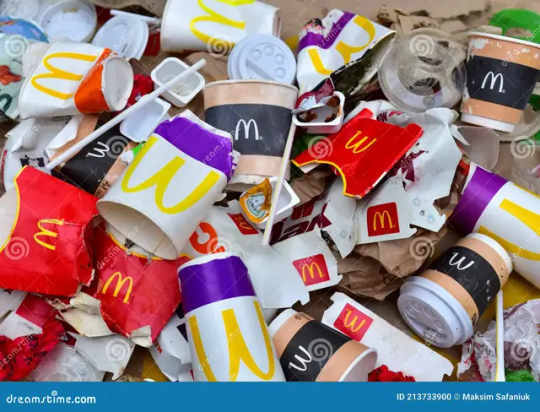
Plastic wrap takes 1000 years to decompose.
Do you think about the amount of plastic used to wrap bottled water, packaged items, consumer goods? Or do you buy, consume, use, throw away?
Mind controlled.
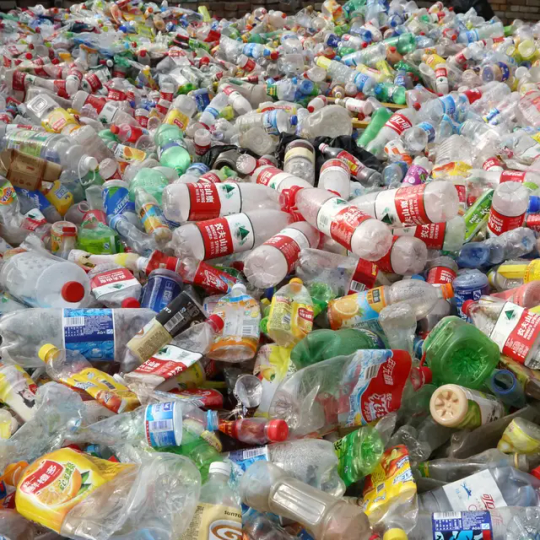
Ziploc bags take 1000 years to decompose. Did you think about that as a kid in the cafeteria when you removed the PB&J sandwich that your mother made for you every day?
Brainwashed.
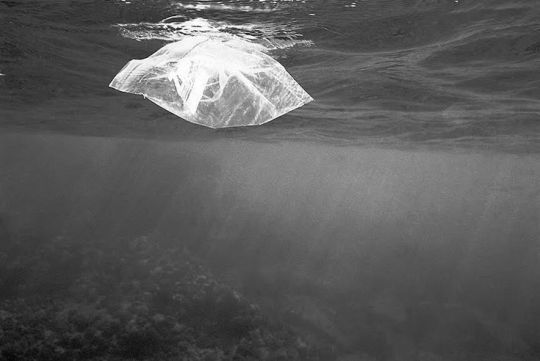
Stop vacationing - airplanes, cruises & automobiles are enormous drivers of climate change. Stay local - go to a library, state fair, amusement park, carnival, museum, science center, have a staycation - movie marathon at home etc, take a local class - dancing, pottery, painting, etc., visit local farms & parks.
Deprogram yourself from the belief that you need to take annual vacations, summer trips, tropical vacations, exotic vacations or that you “need to get away” —
Get away from what?
Zombified.
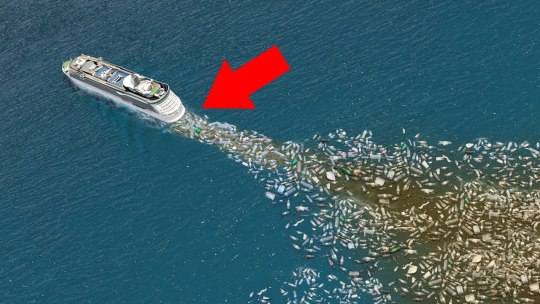
Avoid driving as much as you can. Automobiles and the fossil fuels to drive them are a huge contributor to climate change. Wherever possible, do not drive and use as minimal gas as you can. Walk, ride your bike or a scooter, skateboard, roller skate or rollerblade or take public transportation where available if you have to use a car try to carpool or rideshare. Question if you really have to go wherever youre driving and is it worth the additional contributions youre making to climate change.
Can you recreate wherever youre going at home? Can you watch the sporting event on TV, stream the concert, watch the movie when it releases to VOD? Do you need to meet up in person or can you do a video call on Twitch or Whatsapp if they are not a walkable distance from you? Can you cook instead of eating out? Can you take an online class vs driving to the class? Can you walk to a local food market vs driving to a grocery chain or big box retail store?
If you dont need to drive where youre going, dont drive.
There are millions of cars on the roads in America every day contributing endlessly to climate change so if you dont have to contribute dont and minimize your contributions as much as possible. If you can sell or donate your car then do so. If you live in an area with minimal public transportation, then drive it as little as possible.
Stop going out to just go out or socialize or be seen as its pointless & unnecessary.
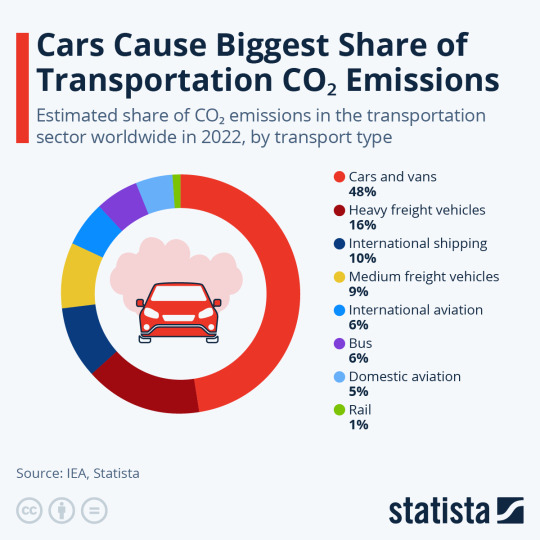
Do your hair yourself and/or cut your hair off (I shave my head bald every 3 to 6 months) & stop driving to the hair salon.

Shave your eyebrows (what I do) and stop driving to the nail salon to get eyebrows waxed or threaded or stop shaping your eyebrows.
Stop painting your nails (what I do) or paint them yourself and stop driving to the nail salon.
Stop buying new stuff and stop driving to the mall.
Stop eating out and stop driving to restaurants.
Stop getting massages and stop going to massage parlors.
Go paperless wherever you can and stop going to the post office.
Stop going to bars and nightclubs, its pointless & a waste of time.
Eliminate bars, nightclubs, shopping malls, restaurants, movie theaters, hair salons, nail salons, massage parlors, post office, grocery stores, big box retail from your life and that should minimize the driving you do.

Dont have children.
By far, human beings are the biggest contributors to climate change so why would you ever willingly produce one (or more than one) given the amount of ecological destruction & climate change humans have already caused?
If everyone avoided having children, we could voluntarily make ourselves go extinct and save planet earth vs the current trajectory of the earth being inhabitable within 100 years and then humanity colonizing Mars and then other planets then destroying those planets in a few thousand years then moving on to the next.
Wash rinse repeat. Stop the cycle.
People are financially rewarded for ecocidal practices so this wont stop so we need to voluntarily stop ourselves and stop reproducing and stop endlessly propagating our species — human — that has been responsible for over 75k animal species going extinct, the destruction of the ozone layer, climate change, greenhouse gas emissions, endless landfills, deforestation, oceanic & air pollution, etc.
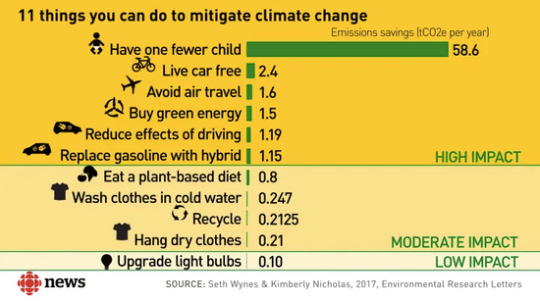
Leather shoes & rubber leather soles take 50 to 80 years to decompose.
Buy flats and wear them until they are unusable. Once that occurs, buy new flats.
You should only be doing this once every few years like I am.
If you stand at work, buy high quality sneakers and only replace when they are breaking down.
I havent bought shoes in over five years & sneakers in over ten years.
Cut hair off like I do and stop using any hair products.
I shave my head bald every 3 months and do not do any hair maintenance. I dont use shampoo, conditioner, grease, oil, moisturizer, hair wraps, brushes, etc and as you can see my hair is perfectly fine.

Buy refurbished tech & electronic devices.
Dont ever buy new.
Look up cobalt mines in Congo and how the materials to make batteries for cell phones, EVs, TVs etc (cobalt) is causing a genocide in Congo as it is the only country that has this mineral so Apple, Samsung, Tesla etc desperately need it for their devices.
Look up the warlords fighting over these mines and the civilians being murdered as a result.
Look up the conditions of the cobalt mines — they employ women and children, no protective gear is issued despite them working in underground mines, no labor laws so they are working 12 to 16 plus hour shifts up to seven days a week exposed to dangerous conditions, toxins, chemicals with no protective gear, clothing or eyewear, they are worked like absolute slaves and are dying in these mines.
They are literally dying for your pink iPhone.

Fuck IKEA. Stop buying furniture to impress people who don't give a fuck if you live or die much less what your fucking furniture looks like.
Per Google: Most furniture is made of non biodegradable & non recyclable materials like treated wood that can't be recycled.
It takes treated wood years to decompose, and any synthetic fabrics from covers or cushions also take a long time to break down.
A polyurethane seat cushion will take up to 1,000 years to decompose.
Only replace furniture if it is broken beyond the point of repair.
In ten years of living in my 1 bedroom apartment, I have only purchased furniture once.
Dont purchase furniture to impress people, for entertaining purposes, to keep up with your social circle, to flex.
Brainwashed. Mindless. Addicted to trash. Consumerist.
Overconsumption. Materialistic. Out of sight, out of mind.
Who cares if we destroy earth, we're colonizing Mars.
An 80 year human life is worth more than 75k extinct animal species and is worth thousands of tons of plastic that will take hundreds of years to break down in landfills and 6 football fields worth of forests being destroyed via deforestation.
Speciesism is cool as long as its humans being valued among all other species on the planet and even the planet itself.
Ecocide is cool. Environmental damage is whatever.
The destruction of the environment is just part of my brat girl summer.
Has anyone seen MaXXXine?

Who are the greys, Reptilians, minders & keepers?
#anti capitalism#ecocide#climate change#environmental justice#environmentalism#social justice#anti capitalist#communalism#corporatism#landfill#pollution#climate action#climate justice#consumerism#materialism#overconsumption#plastic#brainwashing#mind control#hypnotized#air conditioning#central heating#modern life#garbage#zero waste#reduce reuse recycle#carbon dioxide#carbon footprint#refrigerator#hfc
10 notes
·
View notes
Text
Cybertronians drinking carbonated energon as a home remedy to tank bloating problems. Does this mean anything to anyone.
#daphnis.docx#I am currently sipping at carbonated water praying that my bloating will be reduced so I can sleep
25 notes
·
View notes
Text


#moodevil#dan had an entire pirate ship and he let it catch on fire#and it never once crossed his mind when it was reduced to a pile of carbon#i wish i had a pirate ship
6 notes
·
View notes
Text

Leather vs. Faux: Which Material is Truly Sustainable?
As sustainability continues to influence consumer choices, understanding the environmental impacts of leather and faux (synthetic) leather is vital. Both natural and synthetic materials bring distinct environmental considerations, especially when it comes to greenhouse gas emissions. While methane from animals used in leather production has a notable short-term warming effect, the carbon dioxide emissions from faux leather production can have a more enduring environmental impact. Here, we explore the sustainability debate between leather and faux materials, considering factors such as production impact, biodegradability, and long-term environmental effects.
Understanding Greenhouse Gas Emissions
The greenhouse gases produced in both the leather and faux leather industries have different roles in climate change:
Methane Emissions from Animals: Methane is emitted by livestock as part of their digestive process. Although methane is a potent greenhouse gas, trapping heat 84-87 times more effectively than CO2 over 20 years, it has a relatively short atmospheric lifespan of around 12 years. After this period, methane breaks down into CO2 and water, which plants can absorb through photosynthesis. This natural methane cycle means that, when managed well, methane emissions from animals do not accumulate indefinitely in the atmosphere.
CO2 Emissions from Faux Leather Production: Faux leather, typically made from petroleum-based products such as polyurethane (PU) or polyvinyl chloride (PVC), is more energy-intensive to produce. The extraction, processing, and manufacturing of these materials release significant amounts of CO2, a greenhouse gas that can persist in the atmosphere for centuries. Unlike methane, CO2 from synthetic materials does not break down quickly, leading to a cumulative, long-term effect on global warming.
Biodegradability and Disposal
When it comes to end-of-life disposal, leather and faux leather have contrasting impacts on the environment:
Natural Leather: If produced using eco-friendly tanning methods, such as vegetable tanning, natural leather is biodegradable and can decompose over time. This helps reduce waste in landfills, particularly compared to materials that do not easily break down.
Faux Leather: Synthetic materials used in faux leather are not biodegradable. They persist in landfills, potentially for hundreds of years, and can release microplastics into the environment. This disposal challenge adds to the environmental impact of faux leather, especially in areas where recycling infrastructure for synthetic materials is lacking.
Production and Sustainability Factors
Leather as a By-Product: Natural leather is often a by-product of the meat industry, using hides that would otherwise go to waste. While animal agriculture does contribute to methane emissions, the leather industry utilises resources that are already within the agricultural system, adding value to materials that might otherwise be discarded.
Resource-Intensive Faux Leather Production: Faux leather production relies heavily on fossil fuels, contributing to significant CO2 emissions and non-renewable resource use. While these materials avoid the ethical concerns of animal products, their environmental impact is linked to fossil fuel extraction, greenhouse gas emissions, and persistent waste.
Choosing the Most Sustainable Option
So, how do we choose a sustainable leather option? It’s essential to consider the entire life cycle of the material, from production and use to disposal. Here are some tips for selecting more sustainable leather products:
For Natural Leather: Look for vegetable-tanned, chrome-free, or organic-certified leather products, as these use fewer chemicals and are often biodegradable.
For Faux Leather: Consider bio-based alternatives, such as those made from pineapple leaves, apple peels, or mycelium (mushroom leather), which aim to reduce reliance on fossil fuels and offer lower-carbon, renewable options.
Evaluate Longevity and Purpose: A durable leather product that lasts for years can be more sustainable than low-quality, disposable items, whether natural or synthetic.
Final Thoughts
While natural leather and faux leather both come with environmental impacts, their sustainability largely depends on production practices and material sourcing. Leather’s shorter-lived methane emissions can be managed within a natural cycle, whereas synthetic leather’s CO2 footprint has a lasting effect on global warming. To make the most sustainable choice, look for responsibly produced materials and prioritise long-lasting, high-quality products. Reducing our environmental impact requires careful consideration of every step in a product’s life cycle, from raw material extraction to disposal
#sustainability#sustainablefashion#co2#co2 emissions#ecofriendly#circular economy#reduce co2#carbon footprint#leathercare#leathervsfaux#climate action#green products#leather#leather fashion
2 notes
·
View notes
Text
binged elusive samurai and the boy is cuuuuuuuuuuuuuuuuuuuuuuute

honestly just a very pretty show all around, really got its own style Not afraid to get fun with it

also some surprisingly smooth use of CG especially in the archery fight
Sad its only going to be 12 episodes, but seeing as we haven't even seen the whole main cast yet, they're betting on more. Definitely seems popular enough
#nigewaka posting#i accidentally left some stock reducing on the stove and i turned into a bowl of carbon
3 notes
·
View notes
Text
sources close to speeders report, best way to get where you're going on time still to leave house earlier
#thoughts#i can't wait to reduce my carbon footprint and stop gnashing my teeth at highway traffic 2 hours a day
3 notes
·
View notes
Text

I think that it is very cool that Alfred helps Batman reduce his carbon footprint. It's very green of them, dontcha think? 🤔💚💚
#batman#Alfred#green#reduce carbon footprint#love#happiness#thank you#sharing#60s TV#adam west#the real batman#i loved this show
4 notes
·
View notes
Text

Benefits of Self Sufficient Living
Self-sufficient living, often associated with growing your own food, generating your own energy, and minimizing reliance on public utilities and supply chains, has numerous benefits that can appeal to various lifestyle preferences and ethical considerations. Here are several compelling reasons to consider self-sufficient living:
1. Environmental Impact
Reduced Carbon Footprint: Growing your own food and using renewable energy sources can significantly reduce your carbon footprint. By minimizing transportation and industrial processing associated with everyday goods, you contribute less to greenhouse gas emissions.
Sustainable Resource Use: Self-sufficiency encourages the efficient use of resources, often incorporating practices like rainwater harvesting, composting, and solar energy, leading to a more sustainable lifestyle.
2. Health and Nutrition
Fresher, More Nutritious Food: Homegrown produce is fresher, can be more nutritious, and is free from harmful pesticides and chemicals often found in commercially grown food.
Physical Activity: Gardening and maintaining a self-sufficient home involve physical labor, which can improve physical health.
3. Financial Savings
Reduced Living Costs: By producing your own food, energy, and water, and possibly even making your own clothes or household items, you can significantly reduce living expenses.
Less Dependency on Market Fluctuations: Self-sufficiency can provide a buffer against economic instabilities and price fluctuations in the market, offering a more predictable and stable way of living.
4. Personal Fulfillment and Mental Health
Skills and Knowledge: Learning and mastering the skills required for self-sufficient living can be incredibly fulfilling. It fosters a sense of competence and confidence.
Connection to Nature: This lifestyle fosters a deeper connection with nature, understanding the cycles of growth, and the environment, which can have profound effects on mental well-being.
Stress Reduction: Engaging with nature and physical activity can reduce stress, anxiety, and depression, promoting a more peaceful and contented life.
5. Community and Resilience
Stronger Community Ties: Self-sufficient communities often share resources, knowledge, and skills, fostering stronger connections and support networks.
Resilience and Preparedness: Being self-sufficient means you're better prepared for emergencies, such as natural disasters or supply chain disruptions, ensuring you and your family have the essentials.
6. Ethical and Independent Living
Reduced Consumption: This lifestyle encourages minimalism and reduces the need for mass-produced goods, which often come with ethical concerns related to labor practices and environmental impact.
Freedom and Independence: Self-sufficiency offers a form of independence from utility companies, grocery chains, and other external dependencies, giving you more control over your living conditions.
7. Education and Legacy
Teaching Opportunities: Living a self-sufficient lifestyle offers practical learning opportunities for children and others in your community, teaching them valuable skills and environmental stewardship.
Sustainable Legacy: Adopting this lifestyle contributes to a sustainable future and leaves a legacy that future generations can learn from and build upon.
Self-sufficient living might not be entirely achievable or desirable for everyone, given the commitment and resources required. However, incorporating elements of this lifestyle can lead to significant benefits, contributing to a more sustainable, healthy, and fulfilling way of life.
Resources: https://selfsufficientbackyardreview.com
4 notes
·
View notes
Text
when i was in a level psychology my teacher once asked my class how long we thought we had left before our species went extinct. most of us gave variations in the realm of thousands of years, but my friend said it would be within this century. when we asked her why she just said 'idk i just don't think we're going to last much longer' and we all laughed it off and said she was just being pessimistic. but now i see the way the world is absolutely refusing to respond to climate change the way it needs to and i think she was right.
#i am a sustainability consultant#i calculate carbon footprint#develop net zero strategies#put together impact assessments related to climate change#ive had clients tell us that they literally don't care about reducing their carbon footprint#ive had clients saying that the board doesnt want to approve the funding needed for the interventions we've recommended#ive had clients who very clearly only care about their project so far as it ticks a box#it's so demoralising#climate change
13 notes
·
View notes
Text






George Russell flirting with another man to make his boyfriend jealous, a saga.
The way Lewis shuts his eyes and just smiles about Carlos saying the drinks would be free. It gives “baby I would buy them for you I’m not cheap”
Bonus:

Back to happy husbands
#George fr trying to tell Lewis ‘hey why don’t you invite me to fly with you 🥺🥺🥺’#why don’t you Lewis#bring the boy with you#reduce your carbon footprint
44 notes
·
View notes